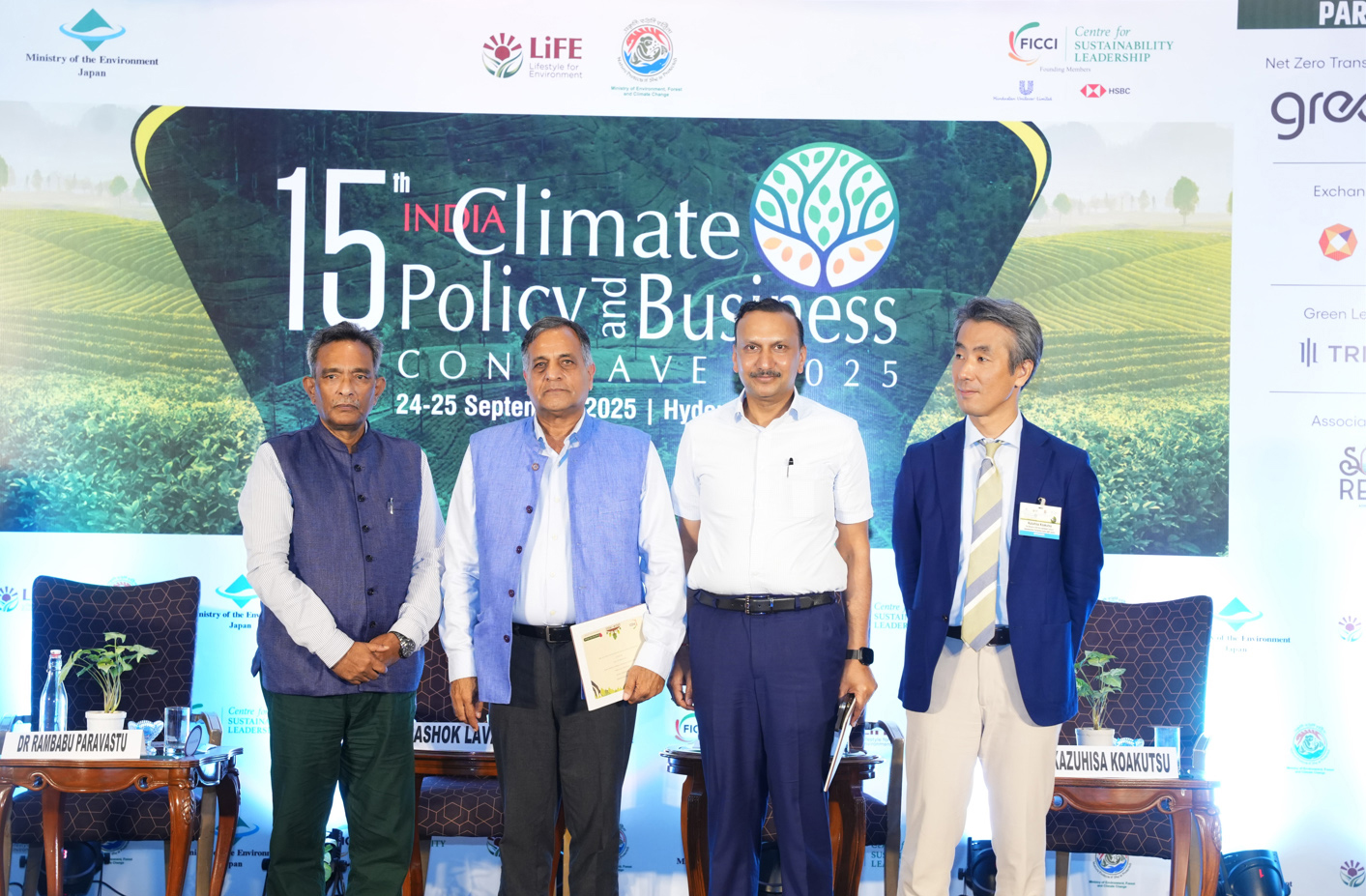
Industry and Policy Leaders Chart India’s Path to Net Zero at FICCI’s 15th India Climate Policy and Business Conclave
HYDERABAD: The day 2 of the 15th India Climate Policy and Business Conclave, organized by the Federation of Indian Chambers of Commerce and Industry (FICCI), in partnership with the Ministry of Environment, Forest and Climate Change (MoEFCC), Government of India, and the Ministry of Environment, Japan, provided a high-level platform to discuss key industry actions like climate adaptation, resilience, carbon mitigation, advanced clean technologies, digital transformations, nature-based solutions and climate resilient agriculture.
Shri Navin Mittal, IAS, Principal Secretary – Energy Department, Government of Telangana, delivered the Valedictory Address, stating that India has crossed the solar tipping point, with non-fossil fuel capacity now exceeding 50% of total installed capacity. Shri Mittal projected that the next major milestone is the storage tipping point, which is expected to occur in the next five years, making solar plus storage significantly cheaper than thermal energy, leading most states to reduce their dependencies on thermal energy. He highlighted massive state-level commitments to 1,500 GWh of battery storage (Telangana) and stressed the huge opportunity in the EV sector for reducing the nation’s $130 billion annual fuel import bill.
Delivering the keynote address, Mr. Ashok Lavasa, Former Secretary, MoEFCC, asserted that the Article 6.2 bilateral mechanism is the most immediate and flexible pathway for securing the technologies and investments needed for low carbon development. He emphasized that the future of climate action depends on the private sector and the common citizen, and that all efforts must be supported by integrity and high-quality credit standards in reporting.
Mr. Kazuhisa Koakutsu, Director of the Paris Agreement Article 6 Implementation Partnership (A6IP) Centre, in his Special Address, affirmed that the JCM’s methodology, which uses a conservative baseline set below existing emissions, was specifically designed to overcome the integrity issues of the CDM era, compelling both India and partner nations to achieve truly additional emission reductions. He added that all JCM and Article 6 projects must adhere to three fundamental goals – Enhancing climate action and adaptation; Promoting sustainable development; and, Ensuring environmental integrity.
Dr. Rambabu Paravastu, Co-Chair of the FICCI Climate Change Committee, closed the Conclave, synthesizing the discussions by affirming that energy sector decarbonization will happen much earlier than expected. He stated that India is poised to become a global leader and exporter of green solutions, leveraging its sun, wind, and water as its new competitive resources. He extended a final appeal for global collaboration, viewing the JCM as the international template, stressing that the true objective is to drive climate action “deeper and wider”.
The conclave featured high-level addresses, deliberations and climate dialogues that celebrated India’s performance and looked toward the next critical milestones.
